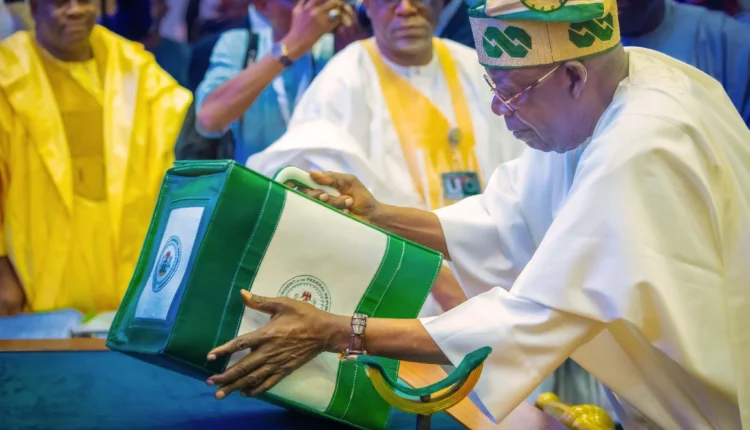The National Assembly has passed the 2025 Appropriation Bill, approving a total budget of ₦54.9 trillion, with ₦300 billion earmarked for health interventions to combat tuberculosis (TB), HIV/AIDS, and polio.
The budget, originally ₦49.7 trillion, was presented to the National Assembly by President Bola Ahmed Tinubu on December 18, 2024, under the theme: “Budget of Restoration: Securing Peace and Building Prosperity.” Following extensive legislative review, including consultations with key economic stakeholders, the budget was revised upward by ₦5.2 trillion to address critical national needs.
Recall that the Senate debated the bill on December 19, 2024, and subsequently referred it to the Committee on Appropriations for detailed scrutiny.
Breakdown of the allocations are:
Health Sector Intervention: ₦300 billion has been set aside to procure vaccines and drugs for TB, HIV/AIDS, and polio following the United States’ suspension of health aid to Nigeria.
Debt Servicing: ₦14.3 trillion has been allocated to debt obligations.
Capital Expenditure: ₦23.9 trillion will fund key infrastructure projects.

Recurrent Expenditure: ₦13.1 trillion is earmarked for running government operations.
Statutory Transfers: ₦3.6 trillion will be allocated to various government agencies.
To accommodate the increased budget size, the Joint Committee on Appropriations stated that additional revenue will be sourced from, Government-Owned Enterprises (GOEs) with a projection of ₦41.8 trillion.
The Federal Inland Revenue Service (FIRS) with a projection of ₦1.5 trillion and the Nigeria Customs Service (NCS) with a projection of ₦1.2 trillion.
The following funds were allocated to priority areas which include: Solid Minerals Sector: ₦1 trillion, Recapitalization of Bank of Agriculture (BOA): ₦1.5 trillion, Recapitalization of Bank of Industry (BOI): ₦500 billion, Critical Infrastructure (RHID Fund): ₦1.5 trillionand Irrigation Development: ₦380 billion.
Others are: Road & Rail Infrastructure ₦700 billion, Border Community Development: ₦500 billion and Military Barracks & Aviation to get₦370 billion
The Lawmakers also observed that the 2025 budget was presented later than the previous year, causing delays in its passage. The Joint Committee on Appropriations recommended that future budgets be presented at least three months before the start of the fiscal year to maintain a January–December budget cycle.
With the ₦54.9 trillion budget now passed, the government aims to boost economic growth, improve healthcare, and enhance infrastructure development. The ₦300 billion health sector intervention is expected to fill the gap left by the U.S. aid suspension, ensuring continued access to essential vaccines and medications for millions of Nigerians.

